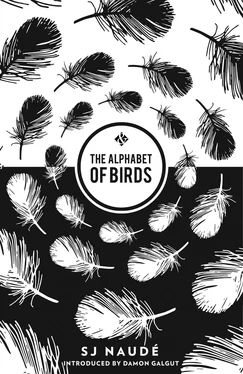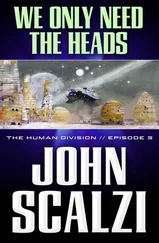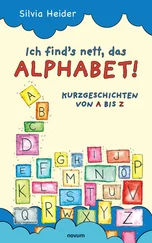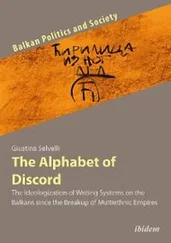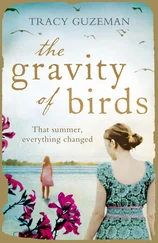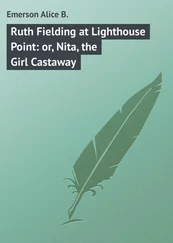‘ Ich kann mich nicht an deinen Namen erinnern. ’ I can’t recall your name.
He has never met the man, he is not one of Joschka’s crowd. ‘ Name, mein Freund, ist Schall und Rauch, ’ he responds. A name, my friend, is just smoke and mirrors.
Joschka is behind him, wary and suspicious of the stranger. Joschka’s eyes are blacker than usual, with lightning in them. Joschka takes him by the hand, leads him to the heat of bodies on the dance floor. They do not move, they just look at each other. Amongst the dancers accelerating like phantoms, they slow down. He rests his head on Joschka’s shoulder. Joschka’s cool palm folds around the back of his head. Against Joschka’s bare chest gleams a slender silver Jesus. Any tension there may ever have been between them, or ever could be, is resolved in such moments. Joschka’s other hand is searching for his. There is distress in the hand. Within a split second the entire world falls into place.
A car ride through a deserted Potsdamer Platz with someone, an architect (Kai? Leander? Sven?), pointing out the different buildings. Like a disinfected piece of North America amidst the grittiness. He looks up at the buildings. The rising sun flashes against glass cliffs. There is no one else on the roads.
Back in Aarik and Wilfred’s flat. They close the curtains against the morning glow. The curtains are thick, shutting out the light completely. After a few minutes in the dark, Joschka rolls over towards him. There is a vehemence about Joschka. He holds on tightly, his feverish night trip finds a purpose. Joschka directs his head down towards the Jesus on his chest. Two shaven heads like moles in the dark room. The heads bob and nibble, fall backwards and gulp for a different kind of air: the thinner, higher atmosphere. Joschka’s straining, all night long, towards something utterly distant, is at an end.
‘This is where you’ve been heading,’ he whispers to Joschka. ‘I can feel it in you.’
He is infinitely tender towards Joschka, as always. The tenderness is gulped down thirstily. Joschka is visibly flooded with calmness; within seconds he is asleep, head in the crook of his arm. Joschka’s short hair under his fingers is as soft as fox fur. He , however, is lying with his eyes wide open. The clashing signals in his blood short-circuit his synapses.
Not long after, Joschka is awake. The gleaming city on the horizon has moved further away yet again. Joschka is searching for a new destination, one inside another body. They are both on their knees on the bed, devouring. Then he tastes iron. Something is wet on his lips and chest. Joschka is undeterred, but he detaches himself. He opens a slit in the curtains, lets the sun in: Joschka naked on his knees on the white sheet. Over his face and chest, bright blood in wild brush strokes. He looks at himself in the mirror. The same. As if he has been tearing at prey.
‘Where is it coming from?’
Joschka looks down with amazement, touches his nose, from which, it turns out, blood is pouring uninterruptedly.
‘It’s me,’ he says, ‘from me.’
Like the aftermath of an accident, so it seems, or a fight. He looks down too, touches his chest. The silver Jesus has carved him. Two short, deep cuts. Painless.
‘And from me.’
Through the slit in the curtains and the open window golden light is shining. A few leaves whirl through; one clings to his upper back. A dove perches on the window sill.
‘How darkly he is staggering aloft, how intoxicatingly, your dragon-prince,’ the dove says. ‘You can expect a terrifyingly beautiful death.’
He is astonished that he can suddenly understand it, the language of birds. Too astonished to engage the dove in conversation.
We are back in Bavaria now, a few days later. Saturday. Joschka locks the oldest part of the castle, die Ruine as the family calls it, behind them as they exit. Joschka called him back up from the cellar.
‘Who knows,’ he said, ‘what one might encounter down there.’
The large key is comical in Joschka’s hand, a prop for an Alice in Wonderland film.
The child, Joschka’s nephew, eleven-year-old Maximilian, is showing them the rest of the castle. A serious child. A stout-hearted miniature guide. There is a well-preserved seventeenth-century section, more knights standing heavily in corners, old swords hanging from hooks on the wall. Pointed Gothic windows with lead glass as murky as silt. Maximilian climbs on a sofa with his Nike sneakers and points out Alexander the Great in an oil painting. The Nike-feet keep disappearing in front of him, around corners, up steep stairs carved from stone. Maximilian shows him the three-hundred-year-old toilet. It hangs out over the abyss. Through the stone bowl, one can see all the way to the bottom of the valley. How unlikely his relationship with Joschka is, he thinks while peering down the ur-toilet. In London their lives are light years apart. For eight years he has been a management consultant at one of the prestigious multinational firms. In the beginning he did not think it would last. It would be a role he endured temporarily before switching to something that better suited his temperament and natural rhythms. An academic post, perhaps, or a job at an international NGO. But over the years your resistance to the corporate common denominators weakens: the narrow spectrum of values and driving forces, the agendas and manoeuvres. It seeps into you. You allow your productive capacity to be hijacked. You build a fort. You look after your interests. You accumulate wealth. You make your alliances, you reconfigure your alliances. You plot your route. You persuade, you withhold, you buy off. You play the game. Well, he has had enough of the game. It bores him to death.
And his social circle in London? Of this too he has had more than enough: the small bourgeois clique of ethically minded types. The Oxbridge and Ivy League champagne socialists from Islington and Camden with their polite vegetarian dinner parties where the financial crisis, global warming, Middle Eastern politics, auctions of mid-century Danish design furniture and the Royal Opera House’s productions of contemporary opera come up in conversation.
Joschka was the antidote to the whole lot. Joschka awoke him from his slumber, where he was lying on the bottom like a fish with gills hardly stirring. Made him shoot upwards and break through the surface, gulping. Everything that felt self-satisfied and predictable and stale and worn was cast out, all with a snap of the fingers. Joschka does not own a penny and has no interest in pounds. No mortgage, no insurance and no private medical care. He rents a room in the heart of London. He has hands that are capable of anything. Hands that start shaping each day when it breaks. Hands that track the shape of whichever body may be at hand that day. Hands that knead and mould dough. He works as a pâtissier in a Regent’s Park restaurant. Each day he throws himself into his work with utter surrender, the creation of things that are sweet and full of visual drama. Handmade chocolates, metre-high French wedding cakes of stacked profiteroles, almond mousse as light as a feather. And more hearty, earthy things: lush cheesecakes, dense and nutty Levantine pastries from which honey drips, heavy English puddings soaked with brandy or custard.
He too became an object of Joschka’s complete dedication. There was enough scorching light behind Joschka’s eyes, enthusiasm like white heat, to propel them both like a rocket. There were, admittedly, many other forms of self-surrender; this he understood early on — ways in which Joschka sought sweet oblivion. Vergessenheit . The signs were there: the ways in which Joschka instinctively knew the underbelly of the city, could read it immediately, the snippets he divulged about his life in Berlin. There were fiery and unknowable impulses just below the smooth skin. A frail bravado, an unsettling unpredictability. Above all, he possessed a hungry kind of beauty. Simultaneously vulnerable and careless. Glowing and chiselled. The eyes of a stag. Tattoos from Pacific islands on veined forearms.
Читать дальше
